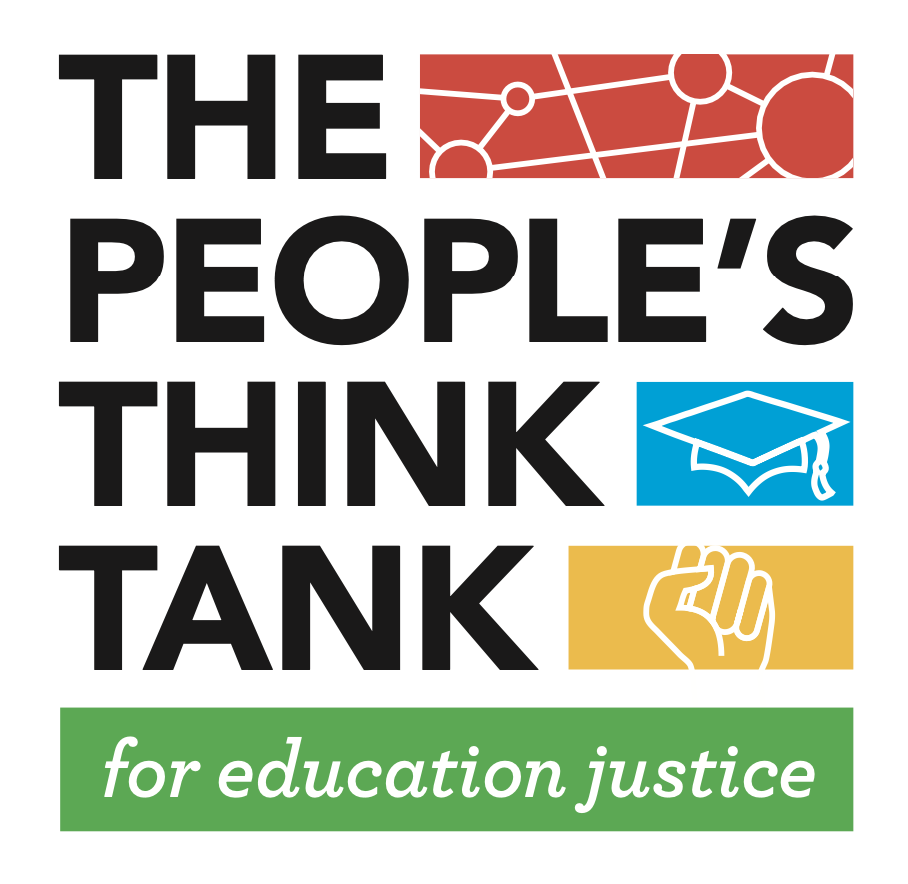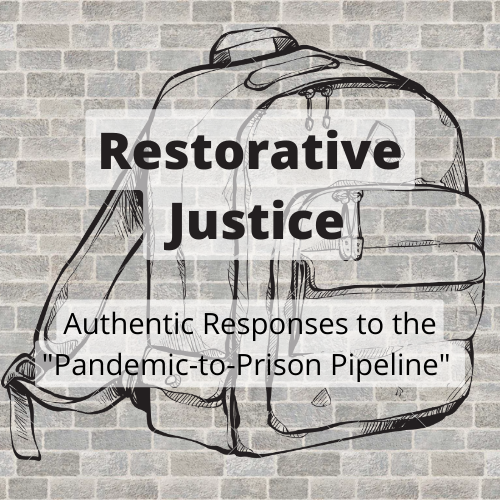By Mark R. Warren, Letha Muhammad and Emma Tynan
At Fishers Junior High School outside of Indianapolis, administrators have recently reported seeing an increase in physical aggression including fights within their school. They responded by suspending significantly more students than they had in previous years. As children returned to school under the pandemic, the same story is being repeated across the country. In Ohio, a teacher reported that they’ve “never seen so much defiance” in their classroom. She responded by making her classroom policies much stricter than they were before the pandemic. Despite staff from both schools acknowledging that the stress and trauma of the pandemic and remote learning were likely causing these behavioral issues, they chose to respond with harsher discipline and punishment and sometimes calling in the police. Typically, harsher discipline and policing fall disproportionately on Black and Brown students from low-income communities, oftentimes pushing them into the school-to-prison pipeline, or what we more recently are calling the “pandemic-to-prison pipeline.”
Many educators believe that parents want stricter discipline. Yet, as we detailed in the book, Willful Defiance, Black and Brown parents have seen their children punished for minor behaviors like so-called “willful defiance,” a subjective category prone to racial bias in application. When students are suspended, they are less likely to graduate high school and more likely to end up in the juvenile and criminal justice systems. Instead of punishing and criminalizing students, more and more parents are calling for restorative justice programs as an alternative.
Restorative justice has its roots in a variety of indigenous traditions. It emphasizes community-building and respectful relationships over discipline and control. When conflict occurs, restorative practices seek to uncover the roots of the problem, address the harm it causes, and rebuild relationships. Many know restorative justice circles as one embodiment of restorative practices, where participants share their views, seek to identify responsibility, and rebuild community. It’s meant to empower students, not punish them.
Unfortunately, some versions of restorative justice can be imposed superficially on school communities and practiced as a way to “fix students” who misbehave. Black and Brown parents, as well as many students and educators, however want restorative justice to drive deeper transformational changes in schooling practices. When implemented in a more authentic way, many educators realize that restorative justice is as much for them as for students: they need to reflect on their practice of discipline and punishment and work to create meaningful relationships with students and their families. In fact, some advocates prefer the term “transformative justice” precisely to highlight the need for this kind of wholesale transformation of school climate, culture and relationships..
Black and Brown parents have been advocating for restorative justice as a community-driven solution to dismantling the school-to-prison pipeline for many years. In Raleigh, North Carolina, for example, the Education Justice Alliance (EJA) works with Black and Brown parents who have for years advocated for restorative justice practices as the norm in their school district, Wake County Public Schools. EJA’s parents believe it is important for our schools to be spaces that are welcoming and that allow young people to grow and thrive. Harsh discipline practices and policies only provide punitive measures without giving space for students and teachers to be reflective and repair any harm they may have caused. They believe the use of restorative justice allows for deeper transformation to take place for the school community as a whole.
Local efforts like those in Raleigh are part of a national movement for education justice, whose formation is documented in our book Willful Defiance. Many groups are members of the national Dignity in Schools Campaign (DSC). DSC has lifted up local models of restorative justice and spread them across the country to parent, youth and community-based efforts.
One of those models comes from Chicago, where the group Community Organizing and Family Issues (COFI) has been developing parent-led restorative justice programs called peace centers in a range of schools for over 15 years. According to Karen Lynn Morton,
Our peace center model is still the only one where parents and community members from that community are the facilitators of peace circles and restorative chats and family group conferencing. It’s a model that is grounded in the philosophy that the community is for the parents and the parents have what the community needs to make it better.
COFI connects the peace centers and its Black and Brown parent leaders to organizing efforts to change the district’s code of conduct to reduce exclusionary discipline practices and win implementation of community schools across Chicago.
DSC has now produced a toolkit of resources using materials from COFI and other community-based restorative justice efforts across the country, including Pa’lante in Holyoke, Mass., the Portland Parent Union, Project NIA and Teachers Unite in New York City. More recently, it has launched a participatory research project to develop even deeper and more transformative approaches based upon the experiences and insights of Black and Brown parents and students, and has begun to issue a set of collective recommendations and guidance.
More recently, school districts like Oakland, California have begun to adopt restorative practices and integrate this approach into its overall educational philosophy and practice. Research-based evidence demonstrates that restorative approaches lower suspension rates and racial disparities in discipline and improve school climate, and growing evidence suggests positive effects related to attendance, graduation rates and school culture.
More and more people are realizing just how deeply entrenched is the system of punishment and criminalization in public schools serving Black and Brown students. The pandemic has only heightened the crisis, showing the failures of our public school system. We desperately need alternatives. But the alternatives cannot be piecemeal reforms that focus solely on addressing individual student behavior, however restorative in intent. Instead, restorative justice needs to be an entry point to the wholesale transformation of the culture, climate and teaching practices in our schools to make them sites of education, liberation and freedom for all children. For that to happen, educators need to find ways to create authentic partnerships with Black and Brown parents and students who can anchor transformation in a clear understanding of systemic racism and a vision to reimagine safety in holistic and empowering ways.
Learn more about police free schools:
Click here for additional resources on restorative justice >
About the Authors:
Mark R. Warren is Professor of Public Policy and Public Affairs at the University of Massachusetts Boston and the author of Willful Defiance: The Movement to Dismantle the School-to-Prison Pipeline (Oxford University Press, 2021).
Letha Muhammad is Executive Director of the Education Justice Alliance in Raleigh, NC, and a member of the Coordinating Committee of the national Dignity in Schools Campaign.
Emma Tynan is a PhD student in Public Policy at the University of Massachusetts Boston.


